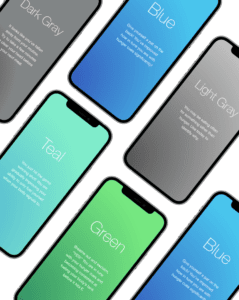How Being KIND Can Improve Your Health

Did you know that kindness is teachable, contagious, and can improve your health? Yes it is possible. February 17th is celebrated as the National Random Acts of Kindness Day! Let’s take a look into the science behind the benefits of being kind to oneself and others.
When you think of things that would make you happier, what comes to mind? Is it going on a vacation, spending time with family, losing weight? But, it may surprise you! Research also shows that the way we can boost our wellbeing is by being KIND.
What is prosocial behavior?
Social psychologists refer to random acts of kindness as a form of prosocial behavior. Prosocial behavior refers to any action that benefits other people, no matter what the motive or how the giver benefits from the action.
Altruism is one aspect of prosocial behavior. It is defined as a desire for wanting to help others without any selfish concern and acting out of concern to improve the well-being of another person.
How to train our brains to default to kindness even when the going gets tough?
Dr. Jud Brewer says that loving-kindness is a mental vaccine for anxiety and anger. A part of the brain is called the default mode network. This network is activated and our brain is turned to switch to survival mode. But our brain is always tuned to choose the rewarding option.
As we make kindness the default mode by introspecting on the feelings of what kindness feels to you and what it feels like to help someone – our brain understands that kindness is rewarding and feels better.
So when someone starts panicking, we would have developed the immunity to be kind, we can instantly pitch in and help by spreading the kindness contagion.
The science and the benefits behind altruism and random acts of kindness.
Recent research on altruism and kindness confirms that practicing compassion, altruism, trust, and being cooperative can boost overall wellbeing at an individual and community level amid these challenging times (Covid-19). Here’re some of the mental and physical benefits of practicing random acts of kindness.
Mental health benefits:
1) Releases feel-good hormones
Practicing random acts of kindness has an impact on mental health by stimulating the production of neurotransmitters in the brain that make you feel good! Research has shown that kindness stimulates the production of serotonin, resulting in feelings of satisfaction. It also causes the reward centers in your brain to light up. Additionally, endorphins also called the body’s painkiller can be released that can calm you down and make you feel happy.
2) Reduces stress
Research has shown that being kind can reduce the production of the stress hormone “cortisol”. Another study reported that about 23% decrease in cortisol was reported as compared to an average person. This results in providing a balanced and healthier lives.
3) Provide a sense of belongingness
Kindness can increase the sense of connectivity with others. Kindness fosters the sense of belongingness. This can improve low mood and enhance relationships.
Research shows that performing kind acts can reduce social anxiety. Results indicated that the socially anxious individuals reported an increase in positive moods, improved satisfaction, and a significant improvement in social avoidance.
4) Boost self-esteem
Practicing random acts of kindness makes people feel valuable, optimistic, and can boost self-esteem. It can also increase empathy and compassion for oneself and others.
Physical health benefits:
1) Reduces blood pressure
Practicing random acts of kindness can create a sense of emotional comfort. This results in the production of the hormone called oxytocin, also known as the “cardioprotective hormone”. Oxytocin has the effect of dilating the blood vessels due to the release of nitric oxide.
Acts of kindness create an emotional warmth, which releases a hormone known as oxytocin. Oxytocin causes the release of a chemical called nitric oxide, which dilates the blood vessels, thereby resulting in a reduction in blood pressure levels.
2) Improves longevity
Research suggests that when the practice of random acts of kindness begins at a young age, it can improve life satisfaction and physical health. Further delaying the mortality and improving the overall wellbeing.
Takeaway!
- As a first step towards kindness, start by being kind to yourself, once your cup is full, it’s easy to help others!
- Just like how it can take time to practice healthy eating or lose weight, consistency, and repetition play a major role. Short moments many times are what make KINDNESS a habit.
- Don’t feel pressured to help and the acts of kindness need not be costly. Some low-cost random acts of kindness during the pandemic: check-in with family or friends, keep a healthy social distance to be safe, send a gratitude letter to your colleague or manager, support small businesses to your best ability or donate clothing!
- Check out Shapa’s blog on self-care practices. Start by establishing a daily consistent routine, take regular breaks!
- Let’s all use this time together to grow into our kind selves!
Looking to sleep better, eat a bit healthier, move more, build a practice of self-care, or just want to feel more energy each day? Let Shapa be your virtual coach. Shapa focuses your program based on YOUR lifestyle and YOUR goals so you can build healthy habits and achieve lasting results. Learn more about the Shapa difference
About the author:
Sujatha is the study manager and content creator extraordinaire on the Shapa Health team. With a Bachelor’s in Psychology and Master’s in Clinical Psychology from India, she furthered her academic skills in Applied Behavior Analysis from Ball State University, Indiana, USA. Currently, she resides in Chandler, Arizona. She has 4+ years of expertise as a mental health professional trained in psychometrics and psychotherapy working with children, adolescents and adults. Over the past 2 years, Sujatha developed a passion for mindful living, neuroscience research, human behavior and decision making, and is driven by curiosity and gratitude. As part of the Shapa Health team she designs personalized missions utilizing behavioral science and mindfulness techniques to improve the personal health journey of the Shapa community. When not at work, she enjoys baking, hiking and spending time with family. Connect with Sujatha on LinkedIn.




